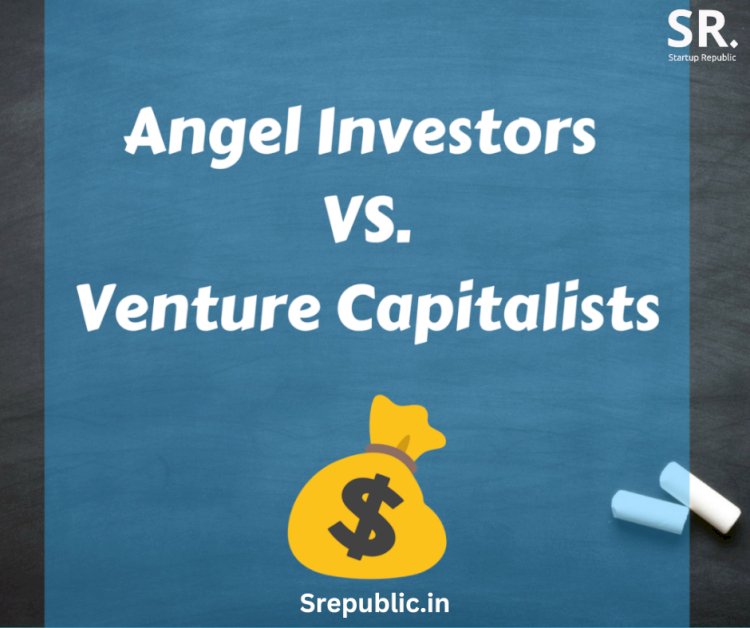Angel Investors vs. Venture Capitalists: Unveiling the Dynamics of Startup Funding
When it comes to funding startups, two prominent players dominate the landscape: angel investors and venture capitalists (VCs). While both angel investors and VCs provide capital to early-stage companies, they differ significantly in their approach, investment criteria, and level of involvement. In this blog, we will explore the distinctions between these two types of investors, shedding light on their unique roles, benefits, and considerations for entrepreneurs seeking funding.

- The Origin and Motivations:
Angel Investors: Angel investors are typically high-net-worth individuals who invest their own personal funds in startups. They are often successful entrepreneurs themselves, seeking to support and mentor promising early-stage ventures. Angel investors are driven by a combination of financial returns, personal passion for entrepreneurship, and the desire to give back to the startup ecosystem.
Venture Capitalists: Venture capitalists, on the other hand, manage funds raised from various sources, such as institutional investors, pension funds, and corporations. Their primary objective is to generate attractive returns for their investors by investing in high-potential startups. VCs focus on scaling businesses quickly and exiting their investments within a specified timeframe, aiming for substantial financial gains.
- Investment Criteria and Stage of Investment:
Angel Investors: Angel investors typically invest at the seed or early stages of a startup. They are often more flexible in their investment criteria and are willing to take higher risks compared to VCs. Angel investors tend to seek opportunities aligned with their personal expertise and interests, and they may have a greater tolerance for investing in unproven business models.
Venture Capitalists: VCs, on the other hand, invest in startups that have passed the initial stages and have demonstrated some level of market validation and growth potential. They prefer startups that have already generated revenue or have a clear path to profitability. VCs often focus on specific industries or sectors and have defined investment criteria, including target market size, team composition, and traction.
- Funding Amount and Investment Structure:
Angel Investors: Angel investments typically range from tens of thousands to a few million dollars. The investment structure can vary, but angel investors commonly invest in exchange for equity ownership in the company. They may negotiate terms individually and often provide mentorship, guidance, and access to their networks to support the startup's growth.
Venture Capitalists: VCs invest significantly larger amounts compared to angel investors. Their investments can range from a few million to tens or even hundreds of millions of dollars, depending on the startup's growth stage. VCs typically invest through a structured process, often involving multiple rounds of funding. They may take a larger equity stake in the company and play an active role in decision-making, board representation, and strategic guidance.
- Involvement and Support:
Angel Investors: Angel investors often take a hands-on approach, leveraging their experience, industry knowledge, and networks to provide strategic guidance and mentorship to entrepreneurs. They may actively participate in the company's operations, serving as advisors or board members. Angel investors offer a personalized touch and are more accessible to entrepreneurs due to their smaller portfolio sizes.
Venture Capitalists: VCs focus on scaling companies rapidly and maximizing their financial returns. While they may provide guidance and support, their involvement is often more structured and focused on achieving specific milestones. VCs bring extensive industry expertise, access to follow-on funding, and a broad network of potential customers, partners, and acquirers.
Conclusion:
Angel investors and venture capitalists are vital players in the startup funding ecosystem, each with distinct characteristics, motivations, and investment strategies. Angel investors bring a personal touch, flexibility, and mentorship to early-stage startups, while venture capitalists provide larger funding amounts, industry expertise, and access to extensive networks. Entrepreneurs must carefully consider their funding needs, growth stage, and long-term goals to determine which type of investor aligns best with their vision. Ultimately, the collaboration between angel investors, venture capitalists, and entrepreneur’s fuels innovation, drives economic growth, and shapes the future of the startup landscape.
























